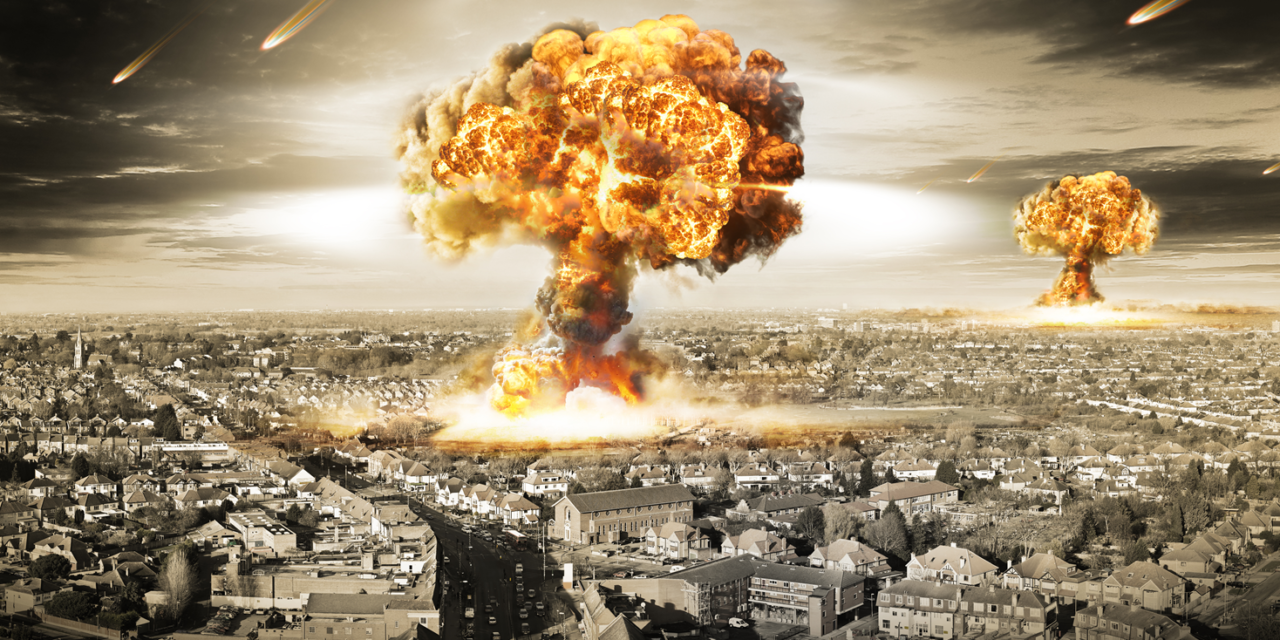Preparing for World War III: The Sobering Reality and Practical Steps
 As tensions escalate around the globe, the once inconceivable prospect of World War III is now a sobering reality that must be considered. While the hope for peace remains paramount, the prudent course of action is preparing for World War III. In this article, we will explore five critical signs indicating the possibility of World War III and underscore the urgent need for preparedness.
As tensions escalate around the globe, the once inconceivable prospect of World War III is now a sobering reality that must be considered. While the hope for peace remains paramount, the prudent course of action is preparing for World War III. In this article, we will explore five critical signs indicating the possibility of World War III and underscore the urgent need for preparedness.
Increased Military Mobilizations and Exercises
One of the most glaring indicators of a looming global conflict is the dramatic increase in military mobilizations and exercises. Nations worldwide are ramping up their military readiness through large-scale exercises, troop movements, and strategic deployments. These activities are not merely routine drills; they are often a signal of preparation for potential combat operations.
In recent years, we have witnessed massive troop movements near contentious borders, particularly in Eastern Europe and the Asia-Pacific region. The rapid deployment of naval fleets to strategic waters, such as the South China Sea, further exacerbates these tensions. The scale and frequency of these exercises are unprecedented, signaling that major powers are preparing for World War III.
Breakdown in Diplomatic Relations
The breakdown of diplomatic relations is another ominous sign that the world is inching closer to a large-scale conflict. Historically, the expulsion of diplomats, withdrawal from international treaties, and the closure of embassies have been precursors to war. Today, we see a marked deterioration in relations between major powers, with frequent diplomatic spats and a lack of meaningful dialogue.
Countries are increasingly resorting to rhetoric and actions that undermine decades of diplomatic progress. The erosion of communication channels between nuclear-armed states is particularly alarming, as it increases the risk of misunderstandings and miscalculations that could spiral into open conflict. This breakdown is a critical factor in preparing for World War III.
Escalation of Regional Conflicts
Regional conflicts have always had the potential to escalate into broader wars, and the current geopolitical climate is no exception. Localized conflicts involving major powers or their allies can quickly draw in other nations, leading to a cascading effect that results in a global confrontation.
We are currently witnessing intensified conflicts in regions like the Middle East, Eastern Europe, and the South China Sea. These hotspots are not isolated incidents; they are battlegrounds where superpowers are vying for influence and control. The involvement of major powers in these conflicts, whether directly or through proxies, raises the stakes and the risk of a broader war. Preparing for World War III means understanding these dynamics.
Cyber Attacks on Critical Infrastructure
In today’s interconnected world, cyber warfare has become a critical component of military strategy. Large-scale cyber attacks targeting essential services such as power grids, financial systems, and communication networks are not just acts of aggression; they are preparations for broader conflict.
The past few years have seen coordinated cyber assaults on critical infrastructure in multiple countries. These attacks are designed to cripple a nation’s ability to function, creating chaos and weakening its defense capabilities. As cyber attacks become more sophisticated and frequent, they serve as a grim reminder of the vulnerabilities that can be exploited in the lead-up to a major conflict. This is a significant aspect of preparing for World War III.
Economic Warfare and Sanctions
Severe economic sanctions, trade embargoes, and financial isolation are often preludes to military action. Economic warfare is a strategy used to weaken an adversary without immediate physical confrontation, but it can escalate into open conflict if the targeted nation decides to retaliate.
Comprehensive sanctions that cripple a nation’s economy, such as those imposed on Iran and North Korea, are becoming more common. These measures not only devastate the targeted country’s economy but also create significant geopolitical tensions. The imposition of such sanctions by major powers and the resulting retaliatory actions further heighten the risk of war. Understanding this is essential in preparing for World War III.
The Need for Preparedness
Given the sobering reality of these developments, the need for preparedness cannot be overstated. While it is impossible to predict precisely when or if World War III will break out, the signs are clear that we are living in increasingly perilous times. Preparing for World War III is not about succumbing to fear but about taking practical steps to ensure the safety and well-being of our families and communities.
1. Emergency Supplies and Resources
Start by building an emergency supply kit that includes food, water, medical supplies, and other essential items. Ensure that you have enough resources to sustain your household for an extended period. Stockpile non-perishable foods, water purification tablets, first aid kits, and essential medications.
2. Developing a Survival Plan
Create a comprehensive survival plan that outlines steps to take in the event of an emergency. Identify safe locations for evacuation, establish communication protocols with family members, and keep important documents and emergency contacts readily accessible. Regularly review and update your plan to account for any changes in circumstances.
3. Community Preparedness
Strengthen community ties and build a network of support with neighbors and local organizations. Community preparedness can make a significant difference in times of crisis. Work together to share resources, information, and skills that can help everyone survive and thrive in the face of adversity.
4. Staying Informed
Stay informed about global events and developments. Monitor reliable news sources and government advisories to keep abreast of any significant changes. Awareness of the evolving situation will enable you to respond quickly and appropriately. This is crucial in preparing for World War III.
5. Mental and Emotional Resilience
Finally, focus on building mental and emotional resilience. The stress and uncertainty of a potential global conflict can take a toll on mental health. Practice stress management techniques, maintain strong social connections, and seek professional support if needed.
Conclusion
The potential for World War III is a sobering reality that demands our attention and preparedness. By recognizing the signs of increasing military mobilizations, diplomatic breakdowns, escalating regional conflicts, cyber attacks, and economic warfare, we can better understand the gravity of the situation. Preparing for World War III is not about fear but about taking responsible actions to safeguard our lives and futures. In these uncertain times, preparedness is not just a choice; it is a necessity.








